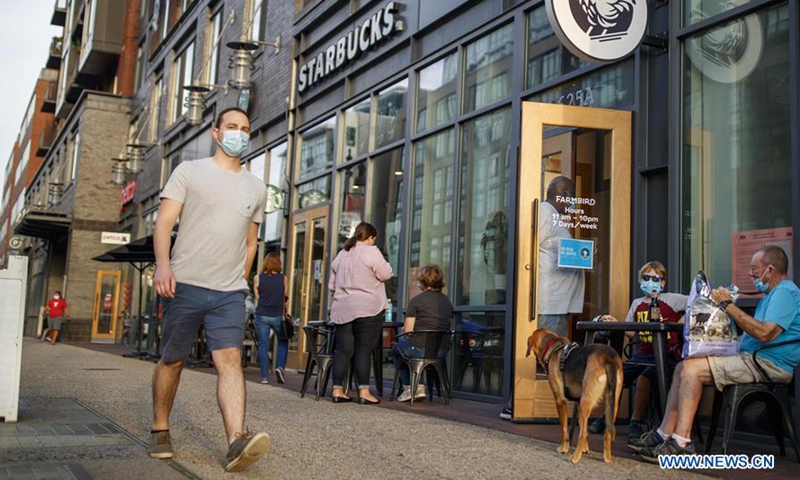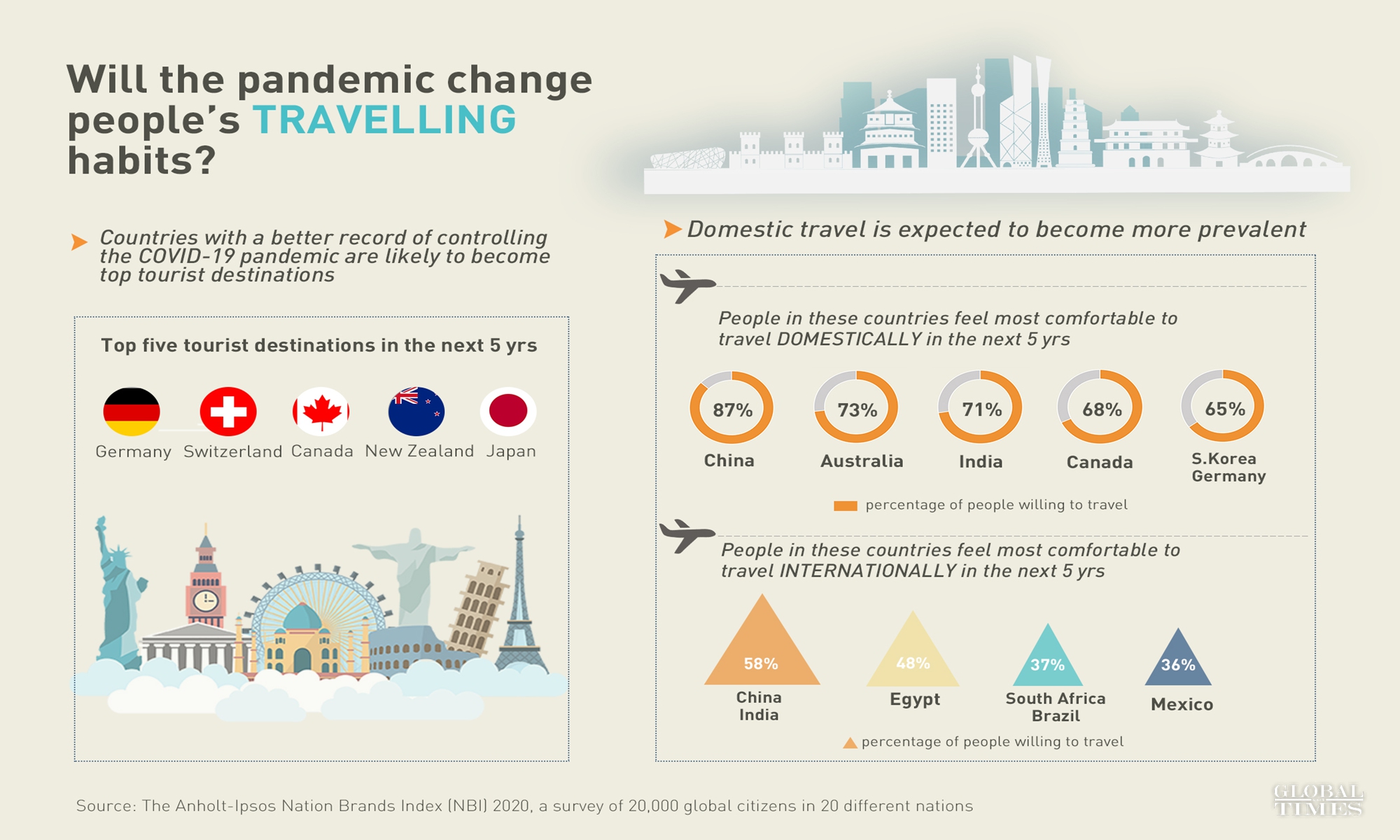US ranks last on favorability in handling health crises: survey
By Deng Xiaoci and Fan Anqi Source: Global Times Published: 2020/8/26 21:46:08

A man wearing a face mask walks past a restaurant in Washington, D.C., the United States, Aug 14, 2020. A new ensemble forecast published by the US Centers for Disease Control and Prevention (CDC) has projected up to 200,000 total COVID-19 deaths in the US by Sep 5.Photo:Xinhua
The US was ranked as the least favored nation in a new poll by France-based Ipsos on how the handling of health crises affects the reputation of nations and regions.
By contrast, Chinese interviewees show high enthusiasm about domestic travel, which ranked top in the survey, reflecting public confidence in Chinese government's handling of the crisis.
The failure of COVID-19 pandemic prevention and control in the world's largest economy has dealt a heavy blow to US' international image, among other profound social problems. As a result, a long bitter winter is coming for American society, observers commented in response to the survey.
Among 50 surveyed nations and regions around the world, the US ranked last with the highest "net negative" favorability in terms of its health crisis management. Ipsos told the Global Times that the full results will be published in October, which will include China's ranking in handling the pandemic.
The reputational losses may have a greater toll on near-future tourism flows, the Anholt-Ipsos Nation Brands Index survey said. A total of 20,000 interviewees in 20 nations took part in the survey.
"Such results show that the majority of the international community is rational enough to see that the US takes nothing but loose and lax pandemic prevention and control measures, at the cost of innocent lives of the mass public, while the well-being of the elite class remains intact," Shen Yi, a professor of international politics at Fudan University in Shanghai, told the Global Times on Wednesday.
Such disappointment over US government's handling of the health crisis would weigh on multiple sectors of American society in years to come, such as tourism, the economy and people-to-people exchanges, including inflow of international students, he noted.
According to data tracking by Johns Hopkins University, the US had 5.8 million confirmed cases as of Wednesday, topping the world.
Observers noted that the haunting "systemic racism" in American society, which entered the spotlight again this week following another police shooting of an African-American in the US state of Wisconsin, would further worsen the image of the US, although this was not mentioned in the survey.
Brazil, home to second-largest COVID-19 affected population totaling about 3.7 million cases, ranked next to last in the survey.

Infographic: GT
As tourism sector gradually recovers from the devastating pandemic, the vast majority of participants said they felt more at ease traveling domestically rather than abroad in the next five years, taking into consideration the public health status and infection risks around the world.
Some 87 percent of Chinese surveyed said they are willing to travel domestically, while 58 percent feel comfortable going overseas, both ranking highest among all 20 nations in the survey.
"The figure suggests high expectations and confidence among Chinese people in the post-epidemic era. It serves as powerful proof of the effective measures China has taken to curb the disease," Song Ding, a research fellow at the Shenzhen-based China Development Institute, told the Global Times on Wednesday.
Apart from China, other parts of the globe have also shown promising signs indicating international travel is slowly climbing out of months of standstill. The top five nations that global citizens express the most willingness to visit in the next five years are Germany, Switzerland, Canada, New Zealand and Japan.
Posted in: SOCIETY